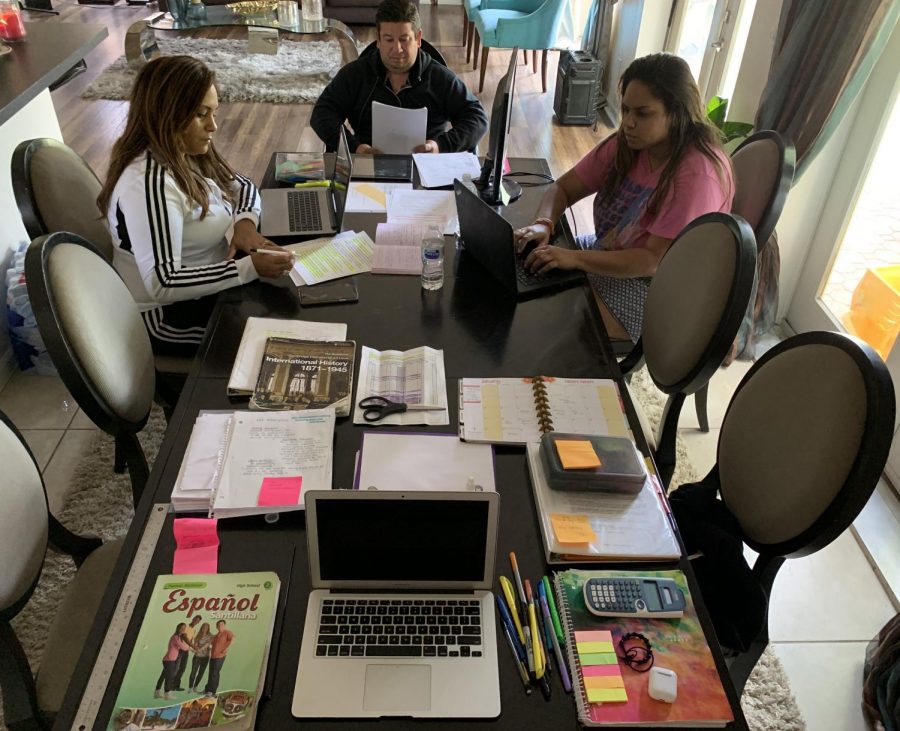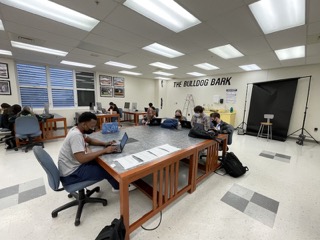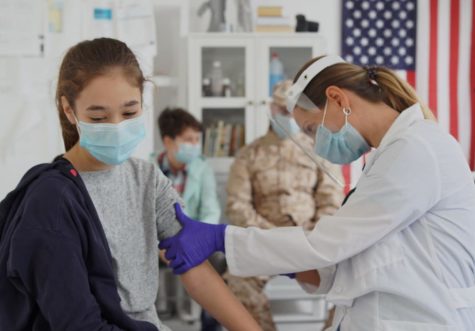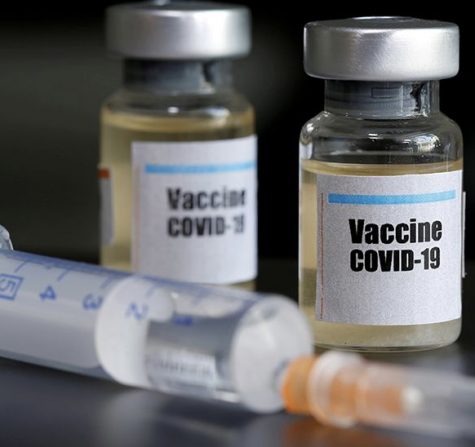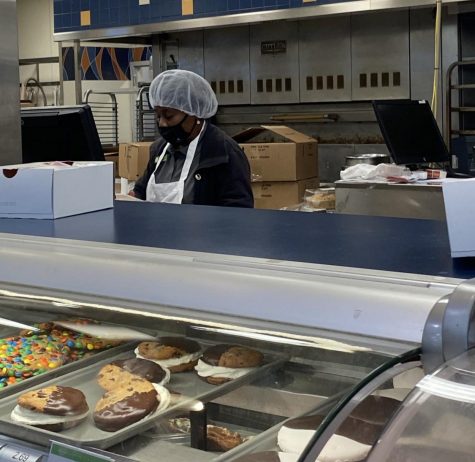From Desk Top to Dinner Table
How my family is dealing with having to work and study together during the COVID-19 quarantine.
May 7, 2020
Dinner tables are sacred places where families can reconvene after a long hectic day. For my family, our dinner table was the one chance a day to unwind. The one place where stresses are forgotten and cellphones aren’t even an option. The Coronavirus has changed all that. Now, it’s a tension-filled workspace where ‘family dinner’ is the least of our priorities.
My sister Hillary, 24, whose office used to be in a telecommunications firm in Brickell, is now two inches away from my mom’s elbow.
“It honestly sucks,” said Ovalle. “Everyone’s things for work and school are right next to the others, there’s no space for anything let alone dinner.”
Finding yourself in the same four walls all day isn’t good for developing social skills, especially if you are one who already has a hard time being social with others.
Even though we are stuck house together, we seem to spend less time together. Now we all retreat to our separate rooms and don’t say a word to each other until the next day.
“Sometimes I just honestly want to be alone and think,” said my father Pedro Serrano. “I love my family to death, never in my life will I ever turn my back on my family but these are hard times that definitely take a toll on your emotions”
Many professionals have pointed out the fact that during times of high stress and tension people tend to isolate themselves more and become more aggressive.
According to the Mental Health Foundation, “Stress can make you feel angrier or more aggressive than normal, stress may also affect the way we interact with our close family and friends.”
But hard times can also pull families together.
Psychologist and family coach Dr. Cameron Caswell Ph.D., says “This could be an opportunity for families to slow down, reconnect, reset their sleep schedules, and breathe.”
Still, there are some major downsides. Ever since the outbreak started, data has suggested that domestic violence and child abuse percentages have increased worldwide.
According to The Guardian, “The UK’s largest domestic abuse charity, Refuge, has reported a 700% increase in calls to its helpline in a single day.”
A psychologist Ph.D. and research evaluation consultant Dr.Josie Serrata, says that often, it the poorest or most vulnerable members of society that are most affected by catastrophes like this one.
We found social factors that put people more at risk for violence are reduced access to resources, increased stress due to job loss or strained finances, and disconnection from social support systems,” he said.
A recent study compared domestic violence percentages during hurricane disasters with COVID-19 isolation. Both events have the same underlying negative effects.
“The things people use in their safety plan are no longer available, which leaves survivors trapped in an escalating cycle of tension, power, and control,” said Dr.Nadine Kaslow Ph.D., professor of Behavioral Sciences and Psychiatry at Emory Universities.
Since the places survivors went to seek help like homes, are shutting down or running out of resources, they are indeed more exposed to getting abused.
If you or anyone you know are currently struggling to get along with your family members during these hard times, licensed therapist and counselor Joyce Marter and clinical psychologist Dr. Ryan Howes Ph.D. have these tips for you:
Talk about it.
“When people bottle up challenging situations, the problems grow and mutate into horrible worries and anxieties,” said Howes.
He believes that it is better to open up and freely speak about your troubles to get a better understanding of others.
Prioritize Self-care.
“Self-care is absolutely necessary to survive tough situations,” said Marter. “Practice mindfulness techniques, such as deep breathing, meditation, and yoga, [which] are excellent for the mind and body when going through a crisis.”
Still doing the things you enjoy and taking good care of yourself is a very good outlet and physical tension reliever.
Remember that everyone heals differently.
“Hardships are opportunities for growth and learning. They deepen our understandings of ourselves, others, and the world around us,” said Marter.
Understanding that everyone reacts and deals with situations in different ways is the main goal. Having this understanding will make things a lot easier as you all work together in improving your communication skills.
“I love my family, and even if there is the possibility that this (quarantine) will keep going on, nothing will change the fact that I
know we can get through this together,” said Antigua.

